On January 5, Chief Judge Miranda Du of the U.S. District Court of the District of Nevada heard oral arguments on Lithium Americas Corp.’s (TSX: LAC) Thacker Pass lithium project in the state. Various environmental groups have appealed the January 2021 decision by the U.S. Bureau of Land Management that had approved the project.
Lithium Americas owns a 100% stake in Thacker Pass. The property may have sufficient resources to produce 60,000 tonnes of battery-grade lithium carbonate per year for 46 years.
As previewed in an early December court filing, some of Judge Du’s questions centered on the relevance of two separate federal courts’ decisions to overturn the U.S. Forest Service’s 2017 approval of the Rosemont copper project in Arizona. Hudbay Minerals’ proposed open-pit copper mine has never produced one ounce of copper.
In its 2022 decision to overturn, the U.S. Ninth Circuit Court of Appeals stated that the Forest Service incorrectly assumed that Hudbay had valid mining claims to occupy about 2,800 acres of public land. Most of those acres would be used for waste rock facilities. Believe it or not, the 1872 Mining Law (passed in that year and signed into law by President Ulysses S. Grant) was a governing principle in the court’s decision.
As currently interpreted, the mining law gives mining companies substantial leeway to develop mining projects on large tracts of public land, but the Court of Appeals felt the Forest Service went too far in allowing Hudbay to use 2,447 acres of the 2,800 acres to dispose of waste rock. Using so much of the land for permanent waste rock storage, the Court of Appeals reasoned, could not be justified according to the 1872 Mining Law.
Environmental groups believe the same principle should be applied to Thacker Pass, which would occupy 1,300 acres of public land in Nevada, much of which would be used to store waste rock and tailings. Both Lithium Americas’ and the U.S. government’s attorneys believe the 1872 Mining Law does not apply in Thacker Pass’ case because we are now “operating under a different regulatory regime.”
After the hearing, Judge Du said her decision on the case could be expected “in the next couple of months,” so a ruling could come as soon as March 2023.
Quite logically, Lithium Americas will not make a final construction decision until it receives Judge Du’s ruling, which is the final regulatory hurdle standing in the way of the commencement of construction.
READ: Lithium Americas To Split Into Two Firms To Unlock Shareholder Value
While Thacker Pass is important, Lithium Americas’ valuation is much more tied to its key asset — the flagship Cauchari-Olaroz lithium brine project in Argentina. Lithium Americas expects lithium carbonate production to begin in the first half of this year.
Lithium Americas owns 49% of Cauchari and China’s largest lithium company, Ganfeng Lithium, owns the balance, or 51%. Lithium Americas will operate the mine. Offtake agreements at market prices (which are very attractive) are in place for over 80% of Cauchari’s planned Stage 1 production.
When Cauchari commences production, particularly when it achieves full production, Lithium America’s portion of the cash flow could be quite substantial. According to a Feasibility Study and Mineral Reserve Estimate with an effective date of September 30, 2020, the project could produce 40,000 tonnes of battery-grade lithium carbonate for 40 years.
READ: Arena Minerals To Be Acquired By Lithium Americas For C$311 Million
Based on assumptions of long-term lithium carbonate prices and operating costs of US$12,000 per tonne and US$3,600 per tonne, respectively, the project could generate average EBITDA of around US$300 million per year. However, since lithium carbonate delivered to China currently trades in the vicinity of US$75,000 per tonne (down from a peak of about US$90,000 in November 2022), Cauchari’s annual cash flow could potentially be multiples of US$300 million, even allowing for much higher costs than assumed in the feasibility study.
Lithium Americas Corp. last traded at $27.70 on the TSX Exchange.
Information for this briefing was found via Edgar and the companies mentioned. The author has no securities or affiliations related to this organization. Not a recommendation to buy or sell. Always do additional research and consult a professional before purchasing a security. The author holds no licenses.





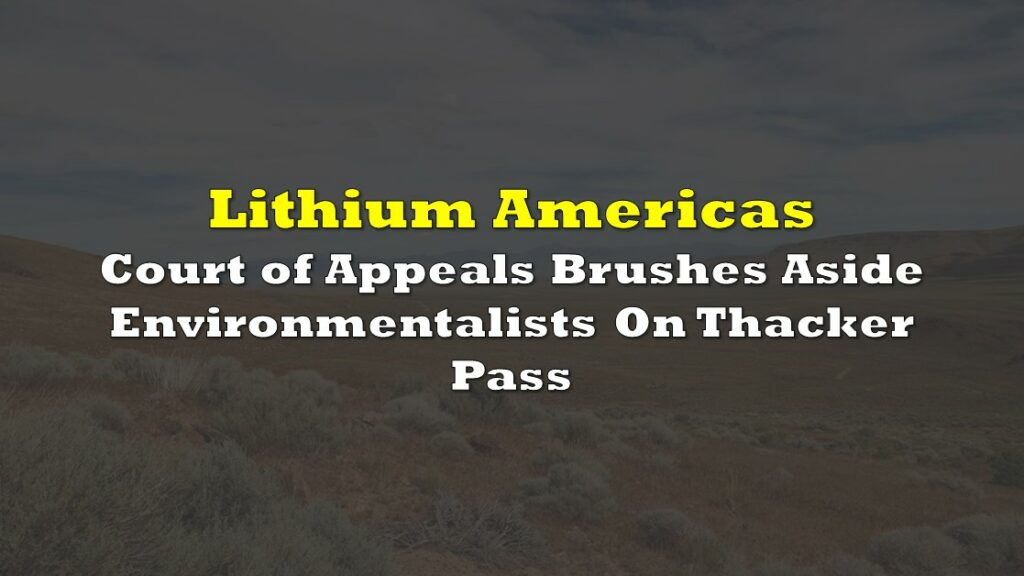
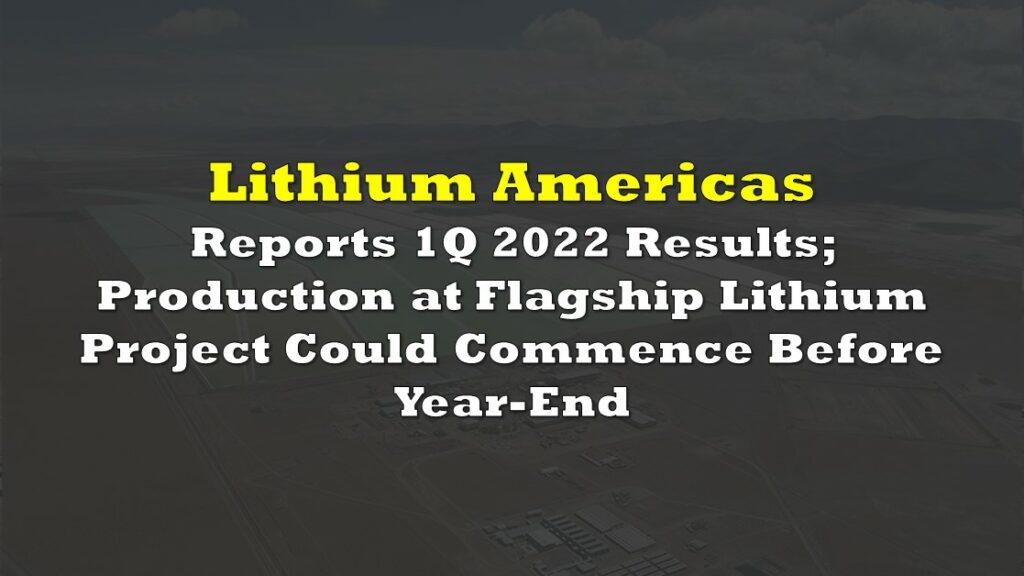
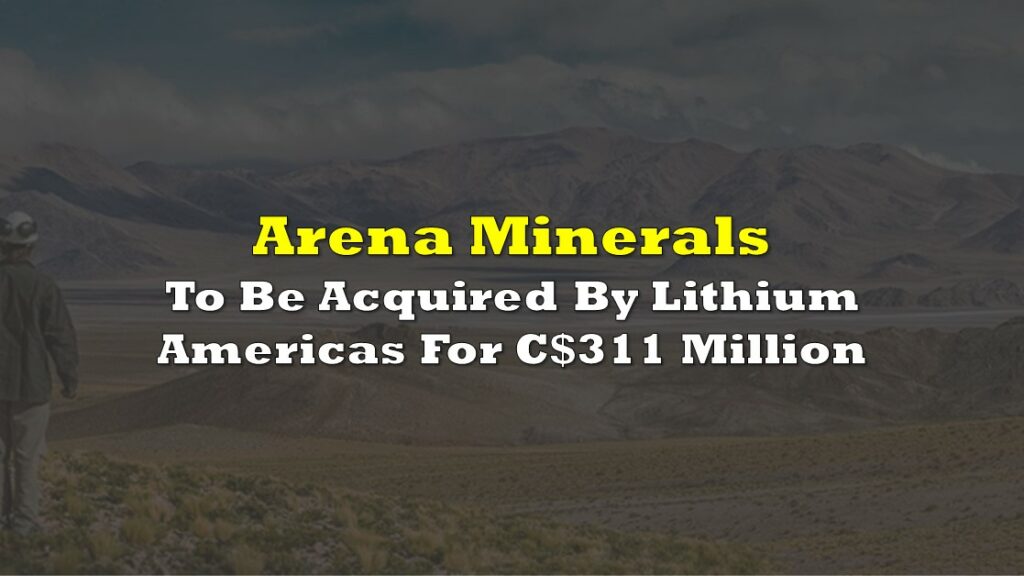
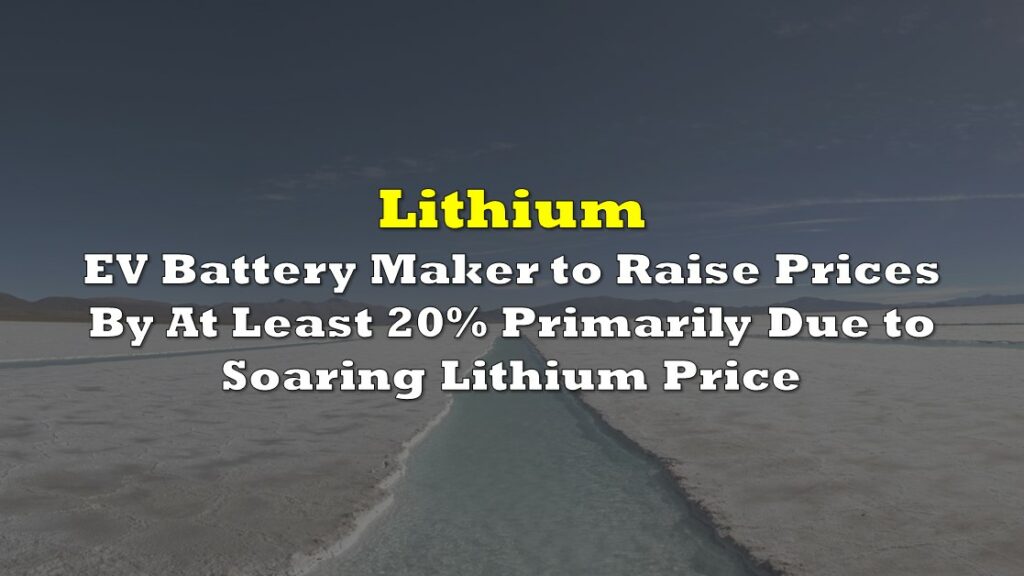
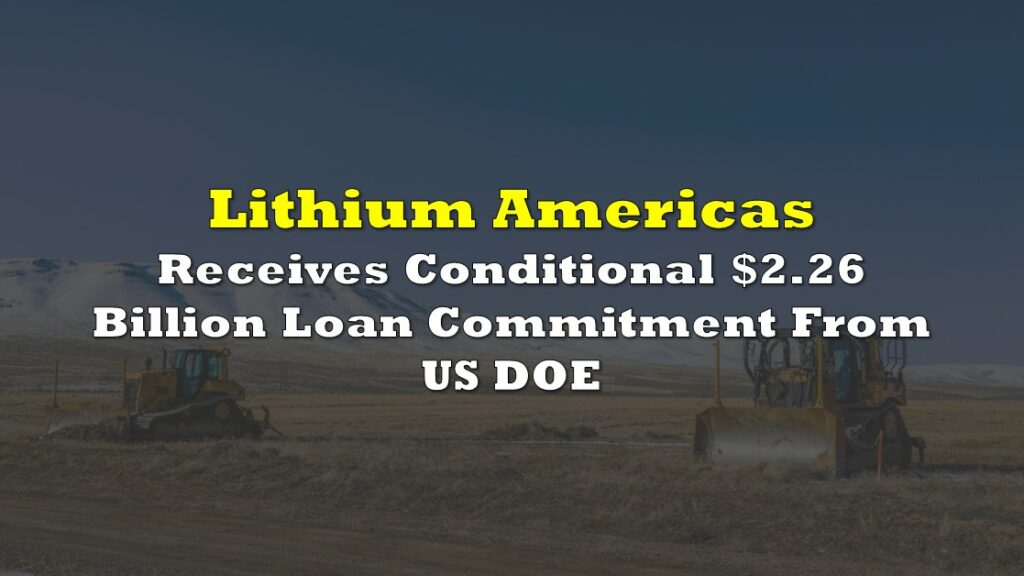
One Response
Thacker Pass was approved by the US Bureau of Land Management, a federal agency with different regulations.
If any of the plaintiffs who have sued BLM for permitting the Thacker Pass mine win, then all “winning” means is that the judge will direct Lithium Americas and BLM to correct the original mistakes they made in the permitting process.
And if Lithium Nevada and BLM correct those mistakes, then Lithium Americas will be granted their permit and the mine will proceed.